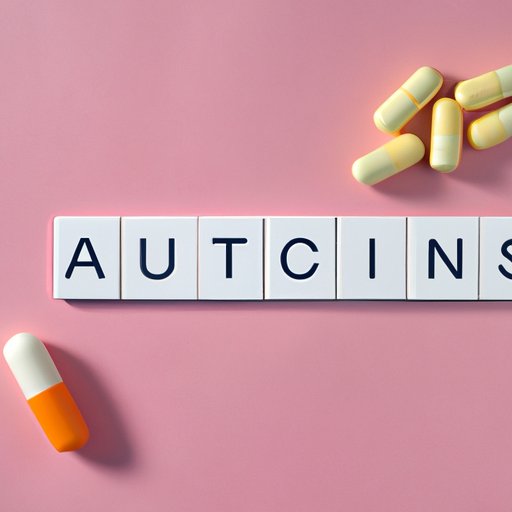
Introduction
Antibiotics are one of the most widely prescribed medications in the United States. They work by killing or inhibiting the growth of bacteria that cause infections. While they can be a lifesaving treatment, their impact on the digestive system can be significant.
Antibiotic-induced constipation is a possible side effect that can occur when the medication disrupts the balance of bacteria in the gut. However, there are strategies that individuals can use to avoid this uncomfortable side effect.
The Link Between Antibiotics and Digestive Health
The gut is home to trillions of bacteria that play a crucial role in maintaining digestive health. When antibiotics are taken, they not only target harmful bacteria but can also destroy beneficial bacteria. This disruption can cause changes in the gut’s microbiome, leading to digestive symptoms such as bloating, gas, and constipation.
Antibiotics can affect the digestive system in several ways. One way is by slowing down the movement of stool through the intestines, which can lead to constipation. They can also decrease the production of mucus in the intestines, which helps to move stool along.
“Fact vs. Fiction” Debunking Common Myths About Antibiotics and Constipation
There are several misconceptions about antibiotics and constipation. One common myth is that antibiotics cause diarrhea, not constipation. However, this is not always the case. Antibiotics can impact the body in different ways, and constipation is a possible side effect.
It’s important to understand that not everyone will experience constipation while taking antibiotics. The severity and duration of symptoms can vary widely from person to person. It’s also essential to pay attention to personal body responses and communicate any concerns with a healthcare provider.
Simple Strategies for Avoiding Constipation While Taking Antibiotics
The following strategies can help prevent constipation while taking antibiotics:
1. High-fiber diet, hydration, and probiotic use
A diet rich in fiber can help keep stool soft and prevent constipation. Good sources of fiber include fruits, vegetables, whole grains, and legumes. It’s also essential to drink plenty of water to keep the stool hydrated and easy to pass. Probiotic supplements or fermented foods can help replenish beneficial bacteria in the gut.
2. The role of exercise in reducing constipation while taking antibiotics
Exercise can help stimulate the muscles in the digestive tract, leading to more regular bowel movements. Even light physical activity, such as walking, can be beneficial.
3. Other lifestyle habits that aid in preventing constipation
Other habits that can aid in preventing constipation include getting enough sleep, managing stress levels, and avoiding alcohol and caffeine. It’s also important to follow the prescribed dosage and timing of antibiotics closely.
Alternative Treatments for Preventing Constipation During Antibiotic Use
Non-pharmacologic options can be used to supplement traditional methods of preventing constipation. Holistic therapies such as massage and acupuncture can help stimulate the muscles in the digestive tract, leading to more regular bowel movements.
However, it’s important to note that alternative treatment options should be discussed with a healthcare professional before trying any new supplements or treatments. They can provide guidance and ensure that any alternative options do not interfere with current medication or treatments.
When to Call Your Doctor: Signs That Your Constipation Might Be Something More Serious
While constipation can be a common side effect of antibiotics, there are instances where it can indicate a more severe medical problem. Individuals should contact their healthcare provider if they experience any of the following symptoms:
- Trouble passing gas or stool
- Bloody or black stools
- Severe abdominal pain
- Unexplained weight loss
- Vomiting or nausea
If the symptoms do not improve with the usual remedies, it’s important to seek medical attention to identify any underlying medical issues.
Conclusion
Antibiotics can be a lifesaving treatment for bacterial infections. However, they can also come with unwanted side effects such as constipation. It’s important to understand the connection between antibiotics and digestive health and take preventive measures to avoid constipation. Individuals should consult their healthcare provider if they experience any severe or persistent symptoms.





